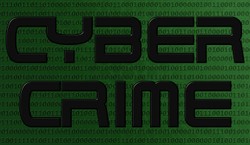Cybersquatting is squatting in cyberspace. It is interesting subject in modern web oriented world, where more and more business is done through the internet and in some areas we can already say somebody without web site simply does not exist.
This kind of activity is also know under different, but related names, and is used as description of activity of domain(s) registration with the intention to prevent others to register their business at the same address. The idea is to resell the right for the use of name to somebody else with huge profit. While initial price is about ten dollars, it can raise up to hundreds of thousands of dollars.
Domain INSURANCE.COM, for instance was sold in 2010 for unbelievable 35,6 million dollars!
And we are talking about domain name only, without any right to content on the side...
Similar to scalping, this is of course illegal business in general, but, as we already said, with a lot of grey areas. We'll explore some common examples and try to learn from mistakes of others to have a better chance making our owns. As already stated, there is no simple black and white comparison, because many cases can be interpreted with different points of view and the results of legal procedures are pretty unpredictable. Yes, dealing with a cyber squatter or being one can be expensive too. So it is best to think twice before you act.








 Pinterest Tipson 11/22/2024
Pinterest Tipson 11/22/2024
 Make Your Printable Advent Calendaron 11/19/2023
Make Your Printable Advent Calendaron 11/19/2023
 Best Free Portfolio Sites for Artists and Designerson 10/06/2023
Best Free Portfolio Sites for Artists and Designerson 10/06/2023
 Thinking About Painting Your Walls Pink?on 06/17/2023
Thinking About Painting Your Walls Pink?on 06/17/2023



Have you ever been a victim of cybersquatter?
It is very hard from legal view but common sense will probably tell you if somebody is trying to exploite your work. In that case, some action must be applied.
The first paragraph in your introduction advises us that "apart from clear rightful and malicious acts we can also find wide gray area of not so clear situations where each of involved sides can claim its own rights."
How difficult or how easy is it to know that a site legitimately is registered or that it results from successful cybersquatting?
There's such a word as trueist, perhaps now more commonly mentioned as truist. It means relating to something obviously accurate albeit non-conducive to any new achievements or understanding.
Might such a word result in some confusion, some invalid typosquatting because of its closeness to truest?
The phrase cybersquatting connects -- to my way of thinking ;-D -- in its last two syllables to the film Three days to kill.
Kevin Costner's character domiciles in his Paris apartment briefly every year. One year he finds a family squatting there. He goes to the police, who indicate that French law gives squatters cold-weather dwelling rights until spring.
Is there a time during the year when cybersquatting is more prevalent?
Might, for instance, cybersquatting be more rampant during good weather, when site-holders and site-seekers have more alternatives to computer activities?
The third and the fourth paragraphs under the first subheading, Cyber squatting, indicate that "The idea is to resell the right for the use of name to somebody else with huge profit. While initial price is about ten dollars, it can raise up to hundreds of thousands of dollars. Domain INSURANCE.COM, for instance was sold in 2010 for unbelievable 35,6 million dollars! And we are talking about domain name only, without any right to content on the side."
Is there any information as to how much more content right adds to such a profitable sale?
The third-last paragraph deals with possible financial compensation to a stubborn cybersquatter.
Might there be a template somewhere for a written contract about and a written receipt for such compensation?
The image left of your title is attractive and welcoming even as it's small -- not your fault ;-D! -- and matches pretty dark green with pretty dark black!
It looks like the first line of letters spells "ybe" and the second line "rim."
What might the full message be?
The first sentence under the first subheading, What is cyber squatting?, advises us that "Cybersquatting is squatting in cyberspace."
The above-mentioned definition causes me to think of a humorous scene in the film Three days to kill.
Kevin Costner's character comes back to France to find squatters in his apartment. He goes to the police, who have the television on loud because of the French soccer game.
The police inform him that he must let them stay in his apartment because French law protects squatters, who have their rights prioritized over those of the lodging's legitimate occupants and owners!
The film script was written by Luc Besson.
Would you happen to have seen the film, available in French as 3 jours à tuer and in German as 3 Tage, um zu töten?
The first full paragraph under the typosquatting subdivision of cybersquatting considers that "search engines are becoming more and more powerful at recognizing this kind of scam."
What do search engines do when they encounter and recognize typosquatting?
The last paragraph alerts someone cybersquatter-ized to ICANN arbitration.
Is there any information as to how those who opt for that process perceive the outcome?